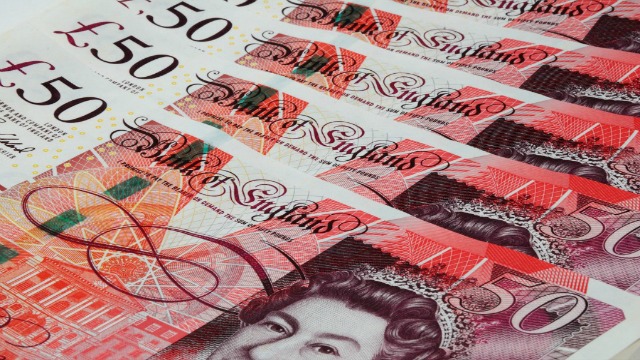If you are lucky enough to have £1 million in the bank or are just interested to know how much you would earn in interest – then this blog post is for you.
Straight off the bat – If you have £1m in your bank account and the interest rate applicable to your account is 3% then you would earn £30,000 in interest in one year. If your account pays 5% interest per year, you would earn £50,000 in interest in one year.
It’s important to note that interest is usually paid out on a compound basis, which means that the interest you earn is added to your original amount and the next interest payment is based on the new, larger amount. For example, if you have £1 million and earn 3% interest in the first year, you would have £1,030,000 at the end of the year. If you earn 3% interest on the new amount in the second year, you would earn £30,900 in interest, for a total of £61,900 in interest over the two years.
The amount of interest you earn can also vary depending on the type of account or investment you have. Some accounts, such as easy-access savings accounts, of fixed notice accounts, offer a fixed interest rate, which means the rate doesn’t change over time. Other investments, such as bonds, may offer a variable interest rate, which means the rate can fluctuate based on market conditions.
It’s also important to consider any fees or taxes that may be associated with your account or investment. These can eat into your earnings and reduce the amount of interest you ultimately receive.
Overall, the amount of interest you earn on £1 million will depend on the interest rate you earn and the length of time you have the money invested. By shopping around and comparing rates from different financial institutions, you can potentially earn more interest on your money and increase your overall returns.
How much do you earn exactly in interest?
The daily, weekly, monthly, and yearly interest earned on savings of £1 million at an interest rate of 3% and 5% can be calculated using the following formulas:
Daily interest = (principal amount * interest rate) / 365 Weekly interest = (principal amount * interest rate) / 52 Monthly interest = (principal amount * interest rate) / 12 Yearly interest = (principal amount * interest rate)
For example, if you have £1 million and earn 3% interest per year:
Daily interest = (1,000,000 * 0.03) / 365 = 8.22 pounds Weekly interest = (1,000,000 * 0.03) / 52 = 61.54 pounds Monthly interest = (1,000,000 * 0.03) / 12 = 25,000 pounds Yearly interest = (1,000,000 * 0.03) = 30,000 pounds
If you earn 5% interest per year:
Daily interest = (1,000,000 * 0.05) / 365 = 13.70 pounds Weekly interest = (1,000,000 * 0.05) / 52 = 103.85 pounds Monthly interest = (1,000,000 * 0.05) / 12 = 41,666.67 pounds Yearly interest = (1,000,000 * 0.05) = 50,000 pounds
It’s important to note that these are just estimates, as the exact amount of interest you earn will depend on the length of the time period and whether the interest is compounded. Compound interest means that the interest you earn is added to your principal and the next interest payment is based on the new, larger principal amount. This can result in higher overall returns compared to simple interest, where the interest is not added to the principal.

Is putting £1 million into a savings account a good investment strategy
Putting £1 million into a savings account can be a good investment strategy in some cases, but it may not always be the most effective way to grow your wealth.
Savings accounts generally offer a low, but steady, return on investment in the form of interest. They are also a very safe investment option in that the rate of income you can earn (in interest) is guaranteed and you are unlikely to lose your principal amount. This is because deposits are backed by the government FSCS scheme (but only up to £85,000 per depositor). Although only this amount is protected in the event that the bank goes bankrupt or experiences financial difficulties it is unlikely that the UK government would allow any UK bank to go bankrupt.
It is worth noting, however, that interest rates offered on savings accounts are generally lower than other types of investments, such as stocks or bonds. This means that you may not see as much growth in your money over time compared to other investment options.
It’s important to consider your investment goals and risk tolerance when deciding how to invest your money. If you are looking for a safe place to store your money and are not concerned with maximizing your returns, a savings account may be a good option. However, if you are willing to take on more risk in exchange for potentially higher returns, you may want to consider other investment options as well.
It’s also a good idea to diversify your investments, rather than putting all of your money into one type of investment. This can help to spread out your risk and potentially increase your overall returns. It’s always a good idea to consult with a financial advisor or professional before making any investment decisions.















Recent Comments